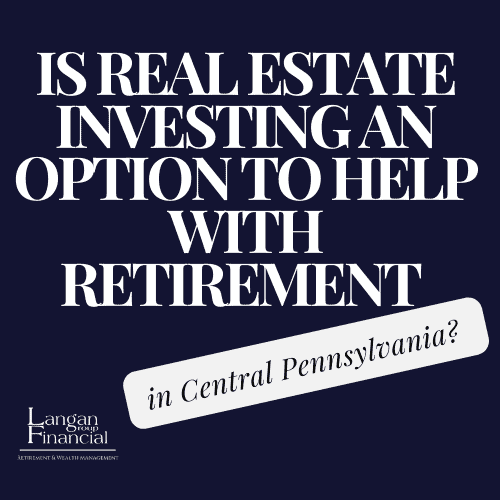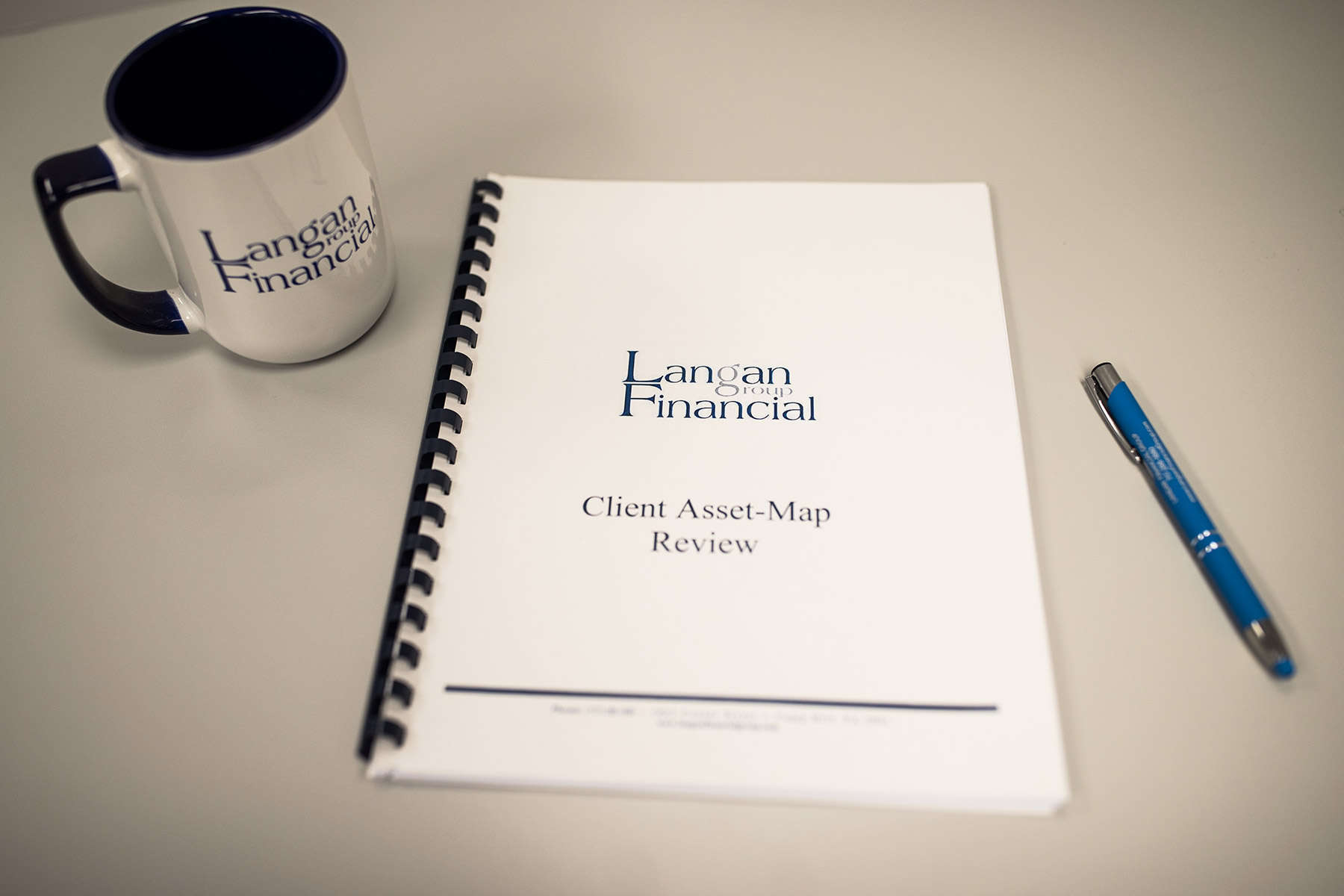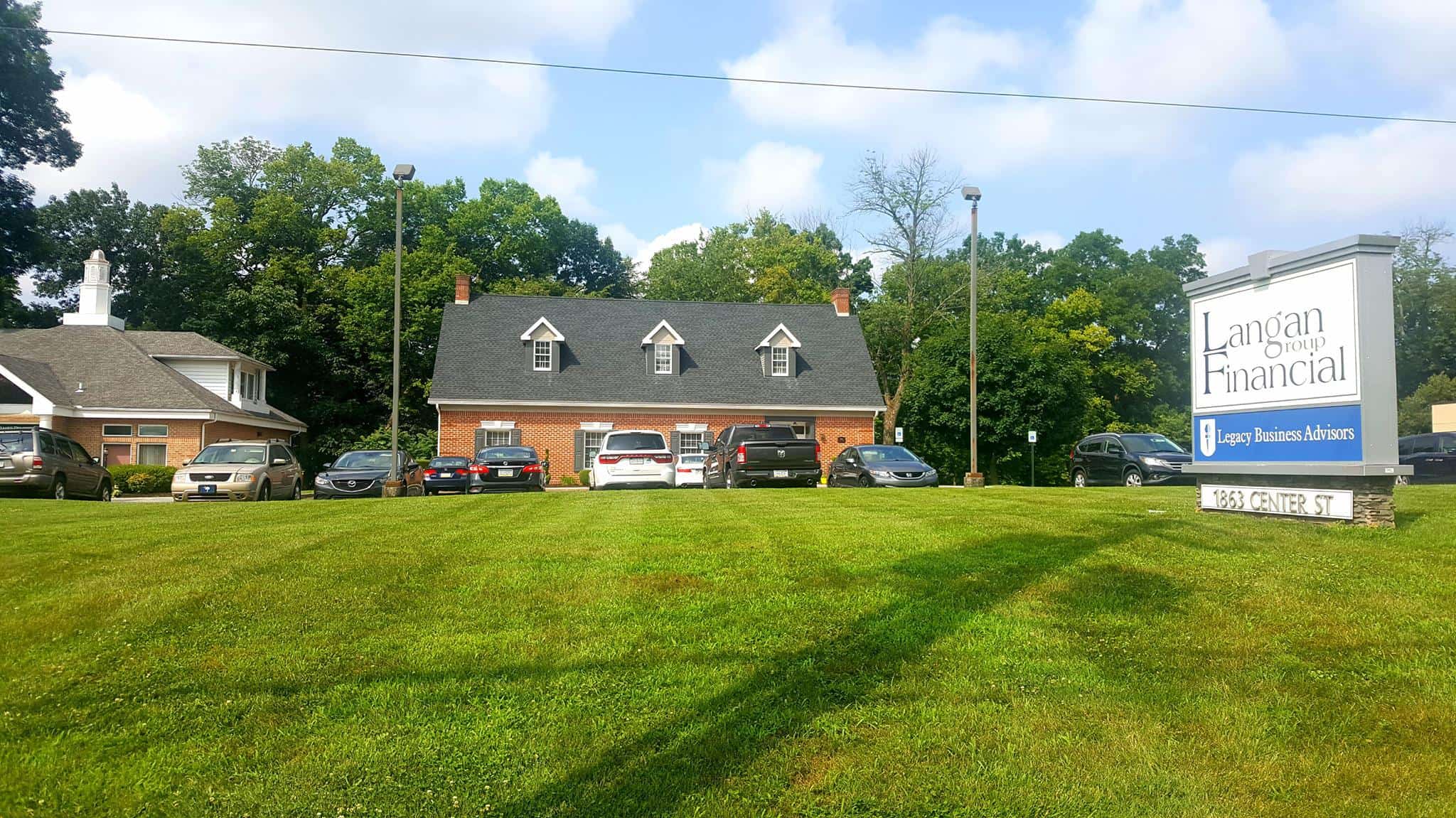TLDR
- Investment Options: Explore rental properties, house flipping, REITs, property appreciation, and crowdfunding/syndication.
- Pros: Potential for passive income, inflation protection, and tax advantages (e.g., deductions, depreciation, 1031 exchanges).
- Cons: High upfront costs, ongoing maintenance, tenant management challenges, and market volatility.
- Tax Benefits: Deductions for mortgage interest, property taxes, operating expenses, and depreciation; 1031 exchanges for deferring capital gains taxes.
- Market Outlook: Central PA’s real estate market shows steady growth, with Harrisburg rents increasing by 30.8% from 2019 to 2024.
- Getting Started: Begin with education, seek mentorship, join local real estate groups, and start small with a clear plan.
Considering real estate investing as part of your retirement strategy can be a smart move. This guide explores how real estate can offer financial security in your golden years. From rental properties generating steady income streams to potential appreciation in value, real estate has the potential to become a reliable source of income alongside your retirement savings.
How to Create Wealth in Real Estate?
Real estate investing is an extremely common practice to build income or net worth for individuals. The main ways to for investing in real estate is either through:
- Rental properties
- Flipping houses
- Real Estate Investment Trusts (REITs)
- Real Estate Appreciation
- Crowd funding / syndication
Types of Real Estate Investments

Rental Properties:
Rental properties come in three different formats:
- Vacation rentals
- Commercial (4+ Units Residential Housing / Store Fronts / Restaurants / Small businesses)
- Residentials (Less than 4 Unit Residential Housing)
Vacation rentals can be difficult as these properties are typically purchased in non-local markets. Investors, usually are not aware of the geographical areas and can easily overpay for properties. In addition, maintenance can be difficult as it is not always easy for owners to be on site.
In addition, depending on the market, vacation rentals may not be rented out year-round. So, your operating window will be narrower, causing you to generate enough revenue to carry through the yearly mortgage and taxes. Seasonal Rentals in areas such as beaches in NJ, MD, and DE vs year-round rentals in areas such as FL, SC, NC, and AZ.
Commercial rentals have changed greatly after covid. The increase in remote work has caused some of the larger offices to close. However, that doesn’t mean businesses are decreasing. In faction, in 2023 5.5 million new business applications were filed in Pennsylvania.
Residential rental properties have been increasing greatly. Rental rates have increased alongside the property values. Making it more difficult to acquire homes at a value that makes sense to cash flow as a rental.
Based on economic and real estate forecast models, rents in Harrisburg are projected to continue rising over the next few years, albeit at a somewhat slower pace of 3-5% annually.
Occupancy rates should remain very high as well, potentially crossing the 97% mark by 2026 if new supply can’t meet demand. For renters, it will likely mean fewer affordable options without some major new workforce housing developments. And landlords will continue benefiting from strong pricing power in the Harrisburg market.
In 2019, the average rent for an apartment in Harrisburg was $975 according to RentCafe. Fast forward to 2024, and that figure has climbed to $1,275, representing a 30.8% increase over the five-year period. This steep rise in rental costs has put increased financial pressure on many residents and does appear to be slowing down quickly.
All of this makes the rental industry look very appealing if you can find the rentals at the right price.

Flipping Houses
Flipping houses is the act of purchasing a property with the intention of reselling it for a profit. Typically, when an investor flips a house, they make renovations and repairs to increase its value. Once the construction is completed, the investor puts it back on the market for a higher price to yield a profit.
Real Estate Investment Trusts (REITs)
A REIT is a company than owns, operates, or finances real estate assets. These organizations can provide investors with an income stream and be part of their investment portfolios.
These programs are typically modeled after mutual funds and combine investor’s financial capital into real estate investments. From these investments, investors earn dividends to their investors.
Real Estate Appreciation
Real estate appreciation is the increase value of real estate over time. Individuals can hold on to properties at length and eventually sell or rent them out. By holding onto the real estate, investors hope it will increase in value.
Crowdfunding / Syndication
Crowdfunding or real estate syndication is when a group of individuals pools money together to invest in real estate themselves. These individuals could create their own partnership organization to conduct real estate investments rather than using a REIT.
This approach helps to minimize the risk while potentially bringing in various expertise through collaborative partnerships.
What Are the Pros and Cons of Real Estate Investments?
Pros:
Real estate investments have multiple benefits, with the following being our top three. One of the biggest pros are it can act as passive income; providing life long financial support to an individual.
Real estate investments can also be inflationary proof. Yes, there is definitely volatility at times and it is important to not be overleveraged – 2008 is a prime example of this. However, especially in Central Pennsylvania, the real estate market has consistently been increasing through the decades, along with rent. There will always be some rough periods, but as long as you take precautions, you can be protected.
These investments also have a wide tax benefit through deductions, depreciation, and 1031 exchanges. If planned properly, you can minimize your taxes and help save your income.
Cons:
With the current projection of real estate valuations, one of the main dangers is overpaying. An investors’ investment is typically not completed once the property is owned. Besides the property the additional costs can include:
| Pre – Acquisition Costs | Post – Acquisition Costs |
| Renovations | Property Management |
| Maintenance | Vacancy Rate |
| Inspection | Utilities |
| Closing Costs | Property Damage |
| Insurance | Mechanical Maintenance (HVAC, Plumbing, Electrical) |
| Mortgage Interest | Seasonal Maintenance (Lawn Care, Shrubbery, Snow Removal) |
| Taxes |
If you do not have a thorough understanding of the property prior to purchasing it, it is likely you could run into extremely expensive repairs. This is a major point in understanding before you proceed into any real estate investment opportunities.
When starting renovations or repairs, it is extremely easy for projects to add up. As you start working, you may change your plans to add on components, or you may realize additional work is necessary, causing the budget to balloon.
This can cause an inexperienced investor to get in trouble extremely quickly. When a person is in financial trouble, the investor is not able to liquidate their assets for cash quickly. If they do need to do so, it is likely they will have to take a major loss to offload it quickly.
Another major issue is tenant issues. I’m sure you’ve all heard of horror stories from tenants. In some situations, there is always a common response – why don’t you just sue them and take them to court? Going to court is not as easy as individuals think. Besides the court fees and attorney fees (if necessary), you are not always guaranteed you will receive those funds back. In most cases, the majority of court cases are settled, so if you are lucky, you will get back a fraction of what is owed. It is usually a lot more headaches than it is worth.
Property management can be time consuming as well. There are many issues you will have to deal with from frivolous to serious. If you are doing this yourself, this can take up a lot of time. However, if you hire a third party to do it, that can cost a lot of money.
Finally, the main barrier to entry for real estate investing is capital intensive. It can cost a lot of money up front to navigate all the necessary expenses. If you are not properly prepared, you may end up losing more than you make.
What are the Tax Benefits of Real Estate Investing
Real estate can provide numerous tax benefits if done appropriately. There are numerous tax-deductible items, in fact too many to completely list. The major categories include anything related to:
- Mortgage interest
- Property tax
- Operating expenses
- Depreciation
- Repairs
The IRS provides guidance on what is tax deductible for rental properties. It states individuals can “Deduct ordinary and necessary expenses for managing, conserving, and maintaining your rental property.”. This is a wide range if items and range from such things as interest and tax to advertising and supplies.
The IRS specifically states though, you can not deduct the cost of improvements which is defined as “amounts paid are for a betterment or restoration or adaptation to a new or different use.” The IRS doesn’t allow investors to deduct this as it is captured through depreciation. Through this methodology, investors can recover some or all of their improvements by using Form 4562 to report it.
Depreciation allows property owners to subtract the cost of a rental property over time. Depreciation can vary depending on residential vs. commercial real estate. For most residential rental properties, the typical depreciation rate is 3.636% each year for 27.5 years, while commercial is approximately 39 years.
Besides deductions and depreciation, there are opportunities in real estate to defer paying capital gains taxes on the profit made from the sale of an investment property through what is called a 1031 exchange. In this instance, the IRS allows investors to exchange one investment property for another and defer capital gains taxes as long as their requirements are met.
Real estate has numerous tax benefits, including several other, more nuanced ones not mentioned in this article. If done correctly, real estate has the potential to be a magnificent tax saving tool for those looking to reduce their income taxes.
Is Real Estate a Better Investment than the Stock Market?
Real estate investments is neither better nor worse than investing in the stock market; rather it is a different tool. Both types of investments come with risks and as such you have the potential to either make or lose money, depending on your implementation.
Can Real Estate Investments Help Me in Retirement?
The short answer is, if it is done right; yes. This is all dependent on how it is implemented. While it has the ability to provide passive income in retirement, it also has the potential to make you go bankrupt.
Alex Langan, Chief Investment Officer of Langan Financial Group said “There are many people that a major part of their retirement plan is real estate investments and that’s great. But it was not an easy, quick return on investment. These investment strategies take time, effort, and planning.”
When it comes to collecting passive income, you will need to hire a management company to take care of:
- Collecting rent
- Property maintenance
- Tenant issues
This minimizes the potential profit you could make, however, if also frees up your time.
How Do You Determine a Good Real Estate Investment from a Poor One?
One of the biggest determining factors is choosing the right property. However, this is a lot easier said than done. There is a ton of work that goes into understanding what is the right property vs. a bad property. A few quick questions to help you understand is:
- What is the market analysis?
- Is this a location that aligns with my property goals?
- What are the likely expenses and repairs needed?
- Does this fit into my budget?
- Do I have the cash flow to fulfill necessary expenses along with a potential surprise expense?
- What is the calculated income vs. expenses?
While these questions do not replace working with an expert in the field, it can help minimize potential issues and avoid a poor investment.
What are the Biggest Pitfalls in Real Estate Investing?
Many people think the majority of real estate investing begins once the property is purchased, however, it is far from that. The majority of the work should go into the planning and research phase, before any money is invested.
Kyle Nornhold, Real Estate Agent with John Ulsh team said, “One of the biggest mistakes I try to help clients avoid is ignoring risk”. When looking at properties, there are typically red flags that alert to potential issues. Sometimes people get so excited about a property they either justify the red flag or ignore it and what seemed like an insignificant problem at the time, balloons into a giant headache.
A significant aspect of serving investor clients involves devising a tailored plan suited to their objectives regarding property investment. The ability to articulate the goals they aim to achieve at their present life stage holds utmost importance in identifying the most suitable investment avenue.
It is vital to do your research on a property. If it does not align with your goals and your budget, then you should keep moving. More properties will come on the market. It is better to wait for the right property than to force a purchase and now have potential cash flow issues.
This issue can lead to multiple other issues such as:
- Overpaying
- Underestimating expenses
- Getting the wrong mortgage
- Poor management
- Tenant issues
- Becoming over leveraged
Create a plan and truly understand your goals. Sometimes the hardest part of the investment process is saying no. Don’t be afraid to walk away if it doesn’t feel right.
What Does the Central Pa Real Estate Market Look Like?
The housing landscape in Pennsylvania remains dynamic, with the anticipated shifts finally materializing in our market data.
Despite a recent hiccup in mortgage interest rates, the situation has stabilized once more, with rates experiencing a slight decline. Presently, the average rate for a 30-year fixed mortgage stands at 6.26%. Projections indicate a continued downward trend in rates as the year progresses.
Turning to property prices, Pennsylvania’s real estate market continues its steady and robust growth. At present, we observe a noteworthy 7.9% year-over-year uptick in the median sales price, which presently sits at $262,900. The supply of available homes has seen a modest improvement, with expectations of further increases as the spring market gains momentum.
What implications do these developments hold for your real estate endeavors?
While we cannot predict the future with certainty, the anticipated decrease in interest rates coinciding with the spring market frenzy is poised to invigorate our market. Anticipate heightened competition in the coming months. If you’re considering a move, acting promptly may allow you to capitalize on the current relative stability.
For prospective buyers, the present moment presents an opportune time to enter the market and secure a property before both competition and prices escalate. Sellers, meanwhile, would be wise to reassess their pricing strategies and prepare for market entry during this favorable window.
If I Wanted to Get Started in Real Estate Investing, How do I Begin?
The first thing we would recommend to anyone is, get a mentor. It is vital to get educated to avoid potentially avoidable mistakes. Education is vital to the success and having someone who knows how to navigate the real estate world is a major benefit.
Join local real estate network groups to build your network and expand your knowledge. These groups have educational seminars, speakers, and potential connections that can help you navigate real estate questions.
Start small and start with developing a plan. Create your budget and take small risks. Compare potential investments with potential profits. You want to know what your potential ROI will be and what the potential costs will be to get there.
Have a checklist to work through and have emergency savings built into it. There is always some unforeseen expense or emergency so it is better to have an emergency fund ready just in case than not at all.
About the Authors

Alexander Langan, J.D, CFBS, currently serves as the Financial Advisor at Langan Financial Group. In this role, he manages investment portfolios, acts as a fiduciary for group retirement plans and consults with clients regarding their financial goals, risk tolerance and asset allocation.
With a focus on ERISA Law, Alex graduated cum laude from Widener Commonwealth Law School. He then clerked for the Supreme Court of Pennsylvania and worked in the Legal Office of the Pennsylvania Office of the Budget, where he assisted in directing and advising policy determinations on state and federal tax, administrative law, and contractual issues.
Alex is also passionate about giving back to the community, and has helped establish The Foundation of Enhancing Communities’ Emerging Philanthropist Program, volunteers at his church, and serves as a board member of Samara: The Center of Individual & Family Growth. Outside of work and volunteering, Alex enjoys his time with his wife Sarah and their three children, Rory, Patrick, and Ava.
Kyle Nornhold , Realtor®, currently serves as the Director of Operations and Sales for the John Ulsh Team with Keller Williams of Central PA. In his role with the team he handles residential sales, investments, land transactions and small commercial deals as well as growing the team with dedicated members who can serve the community at the highest level.
With a focus in Business Administration & Finance, Kyle is a graduate of Central Penn College. After graduation Kyle started a career in the financial services, before making the change to real estate full time in 2018. In 2023 Kyle won Harrisburg Magazines – “Simply the best Real Estate Agent”.
Kyle is passionate about his community and youth sports – when not transacting real estate – Kyle can be found serving the youth sports community as Player Growth Coordinator for GoWags travel baseball organization. As well as high school baseball coach at Red Land High School. In his free time Kyle can be found on the golf course or spending time with his girlfriend Michelle, and their dog Bailey at their home in Lewisberry.
Disclosures
The information in this material is not intended as tax or legal advice. Please consult legal or tax professionals for specific information regarding your individual situation. The opinions expressed and material provided are for general information.



